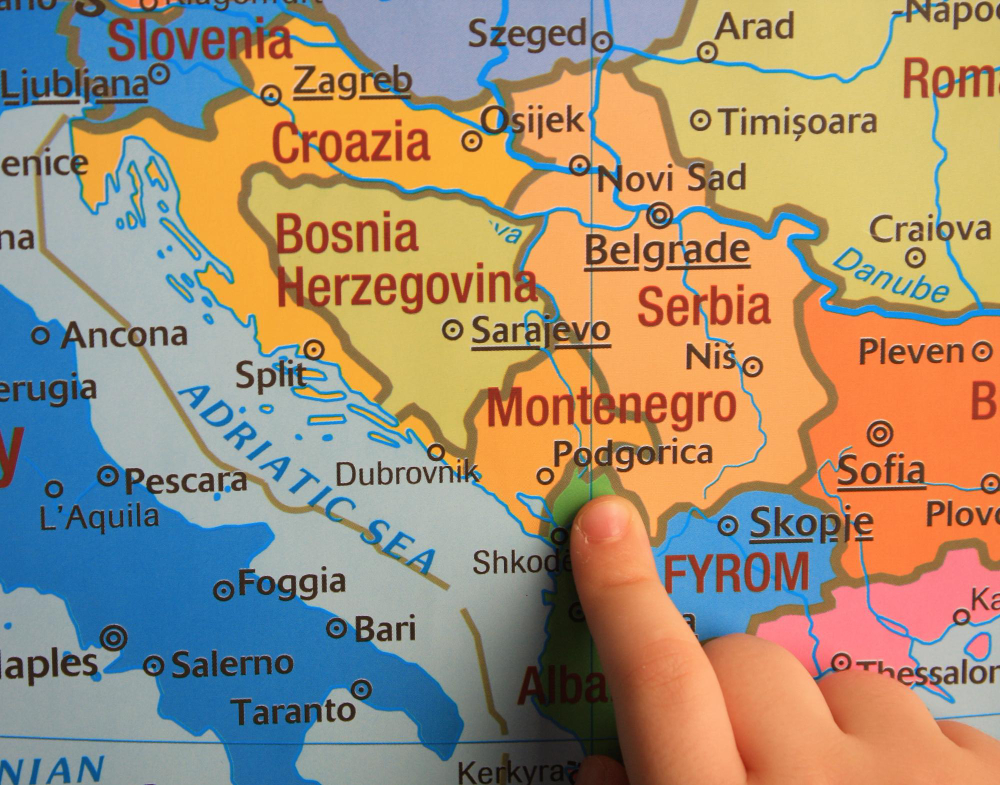Joint press statement EU – Western Balkans Ministerial Forum on Justice and Home Affairs (Budva, Montenegro, 28-29 October 2024)

The Ministers of Home Affairs and Justice of Hungary, representing the Presidency of the Council of the European Union, together with the European Commission, represented by the European Commissioners for Home Affairs and for Justice, met on 28-29 October 2024 in Budva, Montenegro, with their counterparts from the Western Balkans at the annual EU-Western Balkans Ministerial Forum on Justice and Home Affairs. The meeting was also attended by representatives of the European External Action Service, EU agencies, and the incoming Polish and Danish presidencies of the Council of the EU, with the representatives of the South Eastern and Eastern Europe Clearinghouse for the Control of Small Arms and Light Weapons (SEESAC) and of the Council of Europe participating as guests. The meeting reaffirmed the strong regional commitment and close cooperation on Justice and Home Affairs.
The following matters were discussed:
HOME AFFAIRS
Fight against transnational organised crime and illicit trafficking
Parties agreed to continue strengthening cooperation to counter regional and transnational criminal organised networks involved in illicit trafficking, including migrant smuggling and trafficking in human beings, drugs, and firearms trafficking. Joint efforts will therefore continue, especially through Europol and within the European Multidisciplinary Platform Against Criminal Threats (EMPACT). Addressing the drugs phenomenon requires an evidence-based, integrated, multidisciplinary, and balanced approach, aiming to reduce both drug supply and drug demand as well as drug related harm. The European Union and the Western Balkans welcomed the work and the support provided by the relevant agencies and bodies of the EU and the new opportunities offered to further cooperation in the region and beyond. The European Union welcomed the second phase of the Roadmap on comprehensive small arms and light weapons control in the region until 2030, endorsed by all Western Balkan partners.
Strengthening migration, asylum, and border management: the EU Action Plan on the Western Balkans
The European Union and Western Balkan partners acknowledged the progress made on the implementation of the EU Action Plan on the Western Balkans presented by the Commission in December 2022. The European Union and the Western Balkans reiterated their joint commitment to address irregular migration, with a view to reinforce the protection of borders and to fight migrant smuggling, in line with the Global Alliance to Counter Migrant Smuggling. Discussions focused on ongoing efforts to set up sustainable asylum and reception systems and to ensure effective returns of migrants with no right to stay, to their countries of origin. The European Union recalled its increased political and financial support to the region in the area of migration and urged Western Balkan partners to further progress towards aligning their visa policy with the EU list of visa-required countries, given the demonstrated effect that alignment of visa policies with the EU’s has on reducing irregular border crossings along the route.
In addition, Western Balkan partners were updated on the Entry-Exit System (EES) and the European Travel Information and Authorisation System (ETIAS), as well as on the progress towards the adoption of a new Joint Action Plan on Counterterrorism for the Western Balkans in 2025.
JUSTICE
Justice in the digital age
The European Union and the Western Balkans discussed recent developments in relation to the digitalisation of justice and held an exchange of views on the opportunities and the main challenges of the potential of using interoperable solutions and new digital technologies, including artificial intelligence. The European Union encouraged Western Balkan partners to adopt e-justice strategies, to update the existing ones, and to continue to advance steadily in the digitalisation of the judicial systems, making full use of all available funds and the existing e-justice instruments. The European Union provided an update on ongoing EU discussions, inter alia on the efforts towards the digitalisation of justice systems and on the electronic evidence package. Participants were also informed about the Council of Europe’s Framework Convention on Artificial Intelligence and Human Rights, Democracy, and the Rule of Law, which is, inter alia open to the participation of third parties.
Cross-border judicial cooperation in criminal matters
Parties reiterated their commitment to strengthening judicial cooperation in criminal matters, with a focus on enhancing investigations and prosecutions to achieve conviction in cases with cross-border elements, in particular concerning the fight against organised crime. Western Balkan partners were encouraged to improve the effectiveness of their response to transnational organised crime, while improving cooperation between different jurisdictions and ensuring the rights of victims of crime, in line with the EU acquis and international standards. The European Union provided an overview on the revision of the Victim’s Rights Directive and presented some of the measures and actions implemented in the framework of the EU Roadmap to fight against organised crime and drugs trafficking. The European Union called upon Western Balkan partners to step up their efforts in implementing relevant reforms and in enhancing cross border criminal justice cooperation, notably by using all opportunities of cooperation with the justice and home affairs agencies and bodies (Eurojust, Europol, and EPPO). Parties also touched upon the opportunities for further engagement with third countries, inter alia Latin America.
In addition, the European Union provided an update on latest justice-related developments in response to Russia’s war of aggression against Ukraine, including on the enforcement of restrictive measures, Eurojust’s coordination activities in the investigation and prosecution of international crimes in Ukraine, and victims’ rights. The European Union invited the Western Balkan partners to contribute in-kind expertise, cooperate on the enforcement of restrictive measures, and support Eurojust in the coordination of investigation and prosecution of war crimes and the other most serious crimes committed in Ukraine.
The incoming Polish Presidency of the Council of the European Union informed participants on the priorities in the Home Affairs and Justice policy areas during its term.
